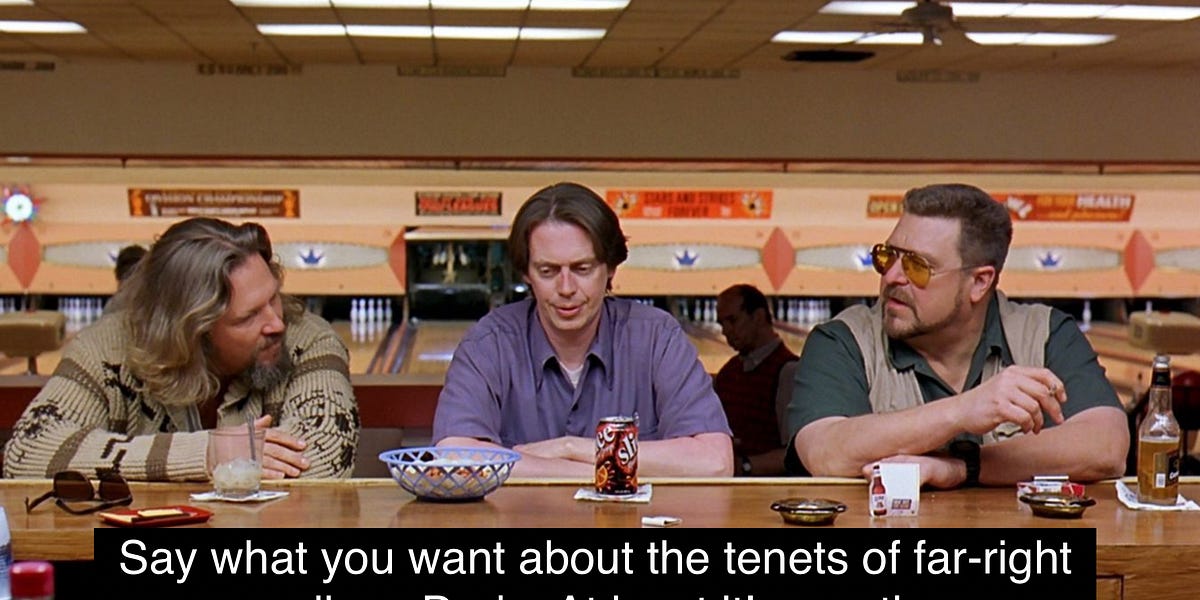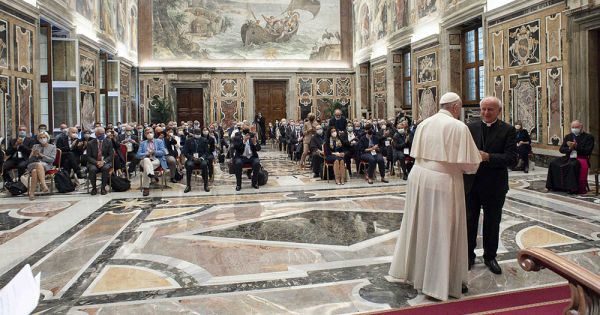Also, Britain is a bad example, because they are not really representative of Europe as whole and culturally closer to the US than the rest of us. You are not searching very far from home if you go to Britain for "foreign" inspriration.
I am bringing up Britain because I assumed people were referring to it because of what happened with the British national in Texas a few weeks ago.
No. The head of government (prime minister Boris Johnson) is not the head of the Church of England. The head of state (queen Elizabeth II) is. In America that's the same person (president Joe Biden), but in Europe (and many other places around the world) these are two different people. State and government are also not the same thing.
I made a mistake; I confused the two terms. I think there should probably be a separate head of state and head of government in the U.S. Then maybe people wouldn't do this idiotic blind allegiance to the president of their party so much.
To be specific, in the UK the monarch is the "supreme governor" of the C of E, a largely ceremonial role. The spiritual head of the church is the archbishop of Canterbury. And the Church of England is not the same thing as "the Anglican church" because there are several churches all over the anglosphere that all belong to the Anglican communion, the C of E being only one of them.
Fair enough. I was reading about the Eastern Catholic church and it occurred to me that religious organizations can be fairly complicated in their structure.
How do you explain the complaints about cancel culture that can be heard in Europe? The cultural infighting on issues like immigration, tradition and cultural, ethnic and sexual identity? The cultural division on fighting the pandemic? Or climate change? ... topics that shouldn't be politican at all and twenty years or so ago probably wouldn't have been.
What do you think explains Brexit and the landslide win of Boris Johnson? The rise of the Rassemblement National in France? The rise of rightwing populism all over Central and Eastern Europe?
How do you explain that one of the largest complaints of people in Germany that people left, center and right agree on is increasing social division?
You were criticizing a far-left (As someone suspicious of radicals who are socially conservative on a lot of issues, I would conclude that she is far left by my standards as well) politician in Germany for being against wokeness a few weeks ago. Are you asserting that she is right to be against wokeness (which in this case was largely about restricting refugees and immigration)? I've seen people complain about immigration in Europe for a long time; wokeness is just new terminology being attached to it.
I don't think these things would have taken root in these other places if there weren't issues. Many places have a history of either being settlers or colonial powers and racial ideology is something that becomes part of the culture on some level; I would say it sounds naive to me to say that was all in the past until stupid American ideas started messing things up.
I am not saying these things are the fault of the left or of woke-ism. I am saying that there are developments in America, an increasing polarization and radicalization, a more militant approach to social issues, that have reached many other countries. The damage that is taking place in America is also starting to happen elsewhere (though in a milder form).
I would say it's a byproduct of capitalism and capitalism needed to employ a "divide and conquer" approach to social issues in order to maintain its dominance or erode anything preventing it from achieving total dominance. (Capitalism is of course not a magic entity but there are people who are invested in it and the social order under it who certainly seem to benefit from all this division, and I think they would be satisfied with the loss of even de jure democracy as long as they maintained their social position.)
Hence, supporting the norms of a system that just wants to encourage this (partisan news networks also profit, by the way) seems improbable as a solution.
That's just my opinion, though.
@Virtual ghost posted an article on why Germany is supposedly turning away from America (I'd have a lot more to say about that article but unlike other times he didn't ask me for my opinion this time

). Something you'll hear a lot over here - and which is related to that article - is "Wir wollen keine amerikanischen Zustände" ("we do not want an American state of affairs", meaning we do not want nazis to storm the parliamentary building, for people to live in parallel worlds and neighbor to turn against neighbor, for society to become more and more divided and mistrustful of each other).
That's fair. I would support Europe becoming more of an equal partner in NATO, for what that's worth.
You often snear at "conventions and institutions" and seem to deliberately ignore the point that without social trust and social coherence you get social instability. This is not about protecting "the rose garden" as you once mockingly said, but about people actually trusting the democratic process. About people living together as a functional society.
My mom actually did complain about the rose garden thing.
Except, the problem is that social trust and social coherence is being eroded even with the norms and institutions. The norms and institutions aren't assuring and providing this, what they are doing is being used to stall progress and maintain the status quo at the expense of social trust and social coherence.
I also think it is unfair that you criticize the U.S. for say, not spending more on a social safety net, and then criticize me for not supporting the traditions and norms of the U.S. These are the very things that are impediments to things like a social safety net. It is the weakening or absence of the social safety net that is creating the instability.
The point I and a few other foreigners on this forum have been trying to make over and over and which almost never went down well with anybody, left or right is: Your values and your political culture, the things you actually do share, are the main problem. I have had discussions with hard left woke people who were deep believers in American exceptionalism.
American exceptionalism is one of the "norms and traditions" I am criticizing.
In fact, I believe America ought to learn how to do more things from other countries instead of always insisting it's the greatest. This goes against "the norm" in America though, which apparently is something I can't do because it's the only thing protecting us from chaos even though we're already getting that.
You just referred to the freedom riders as an example of the fight for freedom being a good thing whereas an outsider perspective would be that the freedom riders were actually about equality and human dignty and that they simply used the "freedom" label because that is a value you guys can all get behind. It's like selling cars by showing a half-naked young female sitting on the hood. Freedom sells. No, freedom obviously isn't a bad thing per se, but America tends to fetishize and infantilize it. If there is crayon religion there surely also is crayon liberty. And that (correct me if I'm wrong,
@Kephalos) is what the quote was likely hinting at.
Weren't you just saying Americans need to place more faith in norms and institutions? Again, this is one of them. I'm all for working with what we have in this case. This is something you have to do within the culture, which the civil rights people were smart enough to know, and something modern day progressives ought to realize instead of conceding it to a bunch of fascists. It kind of shows you just how important it is that even fascists have to do that; but a lot of "socially intelligent" and "pragmatic" liberals don't understand certain aspects of emotional persuasion and would rather just display their moral purity.
As divided as the US might be, there seems to be a large agreement on exceptionalism, individualism and crayon liberty....and on distrust of your fellow citizen as well as distrust of your own state. Add to that mix the treatment of a more than 200 year old constitution as a second bible and you get yourself an explosive mix and a lot of political backlog.
Weren't you just saying that Americans need to have more trust in their norms and institutions? The constitution is probably one of the most foundational of those, and you are suggesting it is being treated with too much reverence?
You also have to keep in mind that the people who blather on about the Constitution don't actually know what's actually in it or what the original intent actually was; it's a lot like how they talk about the Bible. Separation of church and state was in fact the norm in American jurisprudence until the 1950s. There is legal precedent about this dating back to the 19th century, when it was determined that you can't just claim that your religious beliefs exempt you from an obligation to follow the law (in this case it was about Mormons and polygamy).
I would say that we don't actually respect the Constitution that much; one of the things in it is that only Congress can declare war, but the last time that happened was WWII. I think we may have been in a couple wars since then.
Now, whenever a foreigner dares suggest looking at what the other 95% of the human species is doing (who naturally all have their own issues to deal with) you get the response. "That would never fly in America". We suggest you change aspects of your cultural values and you guys (left and right as well as in between) answer "We can't do that because of our cultural values, which are sacred, you see?"

I actually am suggesting we change our cultural values and I'm getting pushback from you about how I should respect American traditions more.










